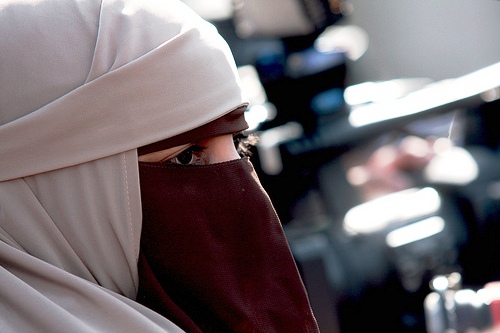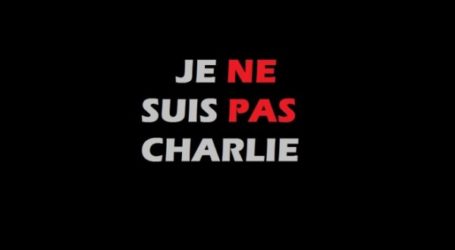ANALYSTS: DOUBLE STANDARD IN EUROPEAN FREE SPEECH LAWS

 Analysts: double standard in European free speech laws
Analysts: double standard in European free speech laws
by Selah Hennessy
LONDON — French embassies, consulates and international schools in 20 Muslim countries were closed on Friday after cartoons depicting the Prophet Muhammad were published earlier this week by a French satirical magazine.
In response to the controversial caricatures, the French government has emphasized that freedom of expression is guaranteed in France. But some critics say in France and other European countries there is a double standard when it comes to free speech.
The French government has said those who are offended by the caricatures can resolve the issue in a court room.
At least one Muslim group has already reportedly filed a criminal complaint with prosecutors in Paris. Prosecutors have yet to decide if legal action will be taken.
Charlie Hebdo, the weekly magazine that published the cartoons, has previously won cases when it was taken to court for offending faith groups. Four years ago it won a case brought against it after it published cartoons of the Prophet Muhammad, which had previously been printed in a Danish magazine.
An unsuccessful complaint was also brought against it after it caricatured the Pope in 2008.
Pierre Guerlain, from Paris West University in France, says the caricatures would need to be found racist for the complaint to succeed. Religious grounds, he says, won’t suffice in France.
“Criticizing religion is a national sport,” says Guerlain. “People in the English-speaking world imagine that France is a Catholic country, but it is a misconception. Most people are secular, agnostics or atheists. They don’t have religious practices.
And traditionally, the French Left built itself around opposition to the Catholic Church. So there is a long anti-religious tradition in France, which carries on to other religions.”
French authorities confirmed Friday that they have banned any protestors from demonstrating against the cartoons. The Interior Minister said prefects throughout the country had been ordered to crack down if the ban is challenged.
Guerlain says such a move by the government undermines free speech values.
“When you ban a demonstration in France, you always argue that there is a danger to public order,” he says. “So the argument is that it is not speech that is banned, but it’s a deed, an action. But in the case of this demonstration, if you restrict avenues for self-expression, I think you make the problem worse.”
In France, he says free speech is a complex issue. On the one hand, France is a signatory to the European Convention on Human Rights, which defends free speech.
But there are limits. For example, the Gayssot Act, which dates to 1990, prohibits any racist, anti-Semite, or xenophobic activities, including Holocaust denial.
Guerlain says exceptions to the free speech rule can create confusion.
“Because in France you have this “Loi Gaysott.” It means some categories of speech are protected, other categories are not protected, which gives a possibility for the far right or Islamic fundamentalists to claim that they are treated in an unfair way,” he says.
Matt Rojansky of the U.S.-based research group, the Carnegie Endowment for International Peace, says France is not the only country in Europe where free speech has its limits – and it creates a sense of hypocrisy.
“Muslims in Pakistan, or Algeria, or where have you, are not unaware that there is a head-scarf ban,” he says. “They understand that Europe is constraining free speech in some instances, but then they see that in other instances people can, in their view, commit grave violations with their speech by publishing cartoons or saying things.
Nationalist politicians say a lot of things, and those things are protected. So they feel that that is an hypocrisy, and I think that position is a logically viable position unless Europe hasn’t resolved that contradiction.”
He says laws in Europe that limit free speech often stem from a desire to create inclusive communities in countries with often large migrant populations.
Many European nations, Rojansky says, contain societies that have very troubling historical relationships – legacies of war, conflict, and occupation – and that has been part of the motivation for limiting free speech.
“It’s understandable that political leaders want to keep a lid on some elements of speech and expression that could, in their view, provoke negative trends, whether it’s violence or nationalist movements, secession, neo-Nazism, etc. That’s an understandable impulse.
I still think it’s wrong,” he says. “And the reason it’s wrong is that if you build your social-contract on the basis of hidden or off-limit zones, things that must not be spoken, those will always be vulnerabilities and sensitivities in your national project.”
Charlie Hebdo published a series of caricatures of the Prophet Muhammad, including cartoons where he is depicted naked.
The magazine published the cartoons after global protests erupted over a video produced by a private film-maker in the United States, which depicts the Prophet Muhammad negatively.
U.S. President Barack Obama has publicly rebuked the video. (T/P3/R01)
Mi’raj Islamic News Agency (MINA)
Sources:
1. http://muslimvillage.com/
2. voanews.com




